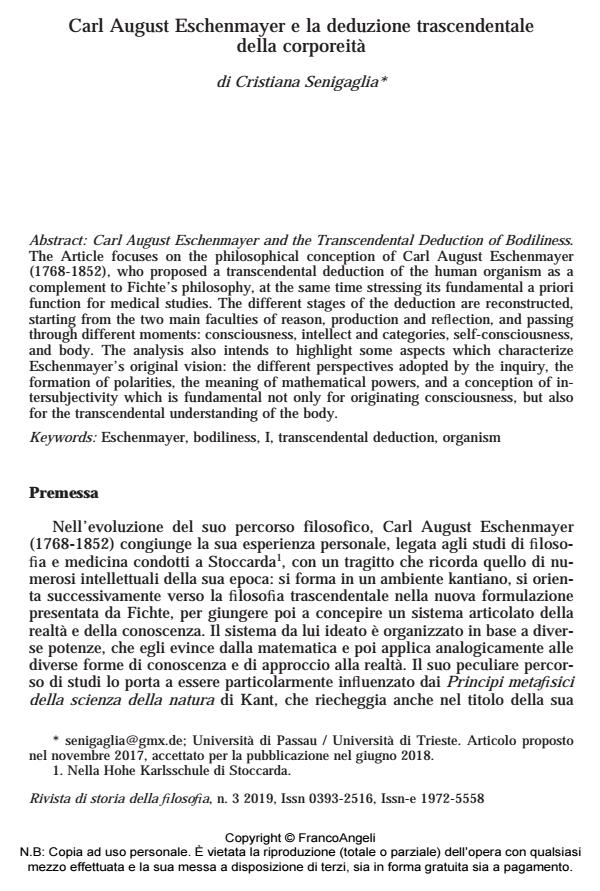Carl August Eschenmayer e la deduzione trascendentale della corporeità
Journal title RIVISTA DI STORIA DELLA FILOSOFIA
Author/s Cristiana Senigaglia
Publishing Year 2019 Issue 2019/3
Language Italian Pages 20 P. 453-472 File size 460 KB
DOI 10.3280/SF2019-003003
DOI is like a bar code for intellectual property: to have more infomation
click here
Below, you can see the article first page
If you want to buy this article in PDF format, you can do it, following the instructions to buy download credits

FrancoAngeli is member of Publishers International Linking Association, Inc (PILA), a not-for-profit association which run the CrossRef service enabling links to and from online scholarly content.
Carl August Eschenmayer and the Transcendental Deduction of Bodiliness. The Article focuses on the philosophical conception of Carl August Eschenmayer (1768-1852), who proposed a transcendental deduction of the human organism as a complement to Fichte’s philosophy, at the same time stressing its fundamental a priori function for medical studies. The different stages of the deduction are reconstructed, starting from the two main faculties of reason, production and reflection, and passing through different moments: consciousness, intellect and categories, self-consciousness, and body. The analysis also intends to highlight some aspects which characterize Eschenmayer’s original vision: the different perspectives adopted by the inquiry, the formation of polarities, the meaning of mathematical powers, and a conception of intersubjectivity which is fundamental not only for originating consciousness, but also for the transcendental understanding of the body.
Keywords: Eschenmayer, bodiliness, I, transcendental deduction, organism
Cristiana Senigaglia, Carl August Eschenmayer e la deduzione trascendentale della corporeità in "RIVISTA DI STORIA DELLA FILOSOFIA" 3/2019, pp 453-472, DOI: 10.3280/SF2019-003003